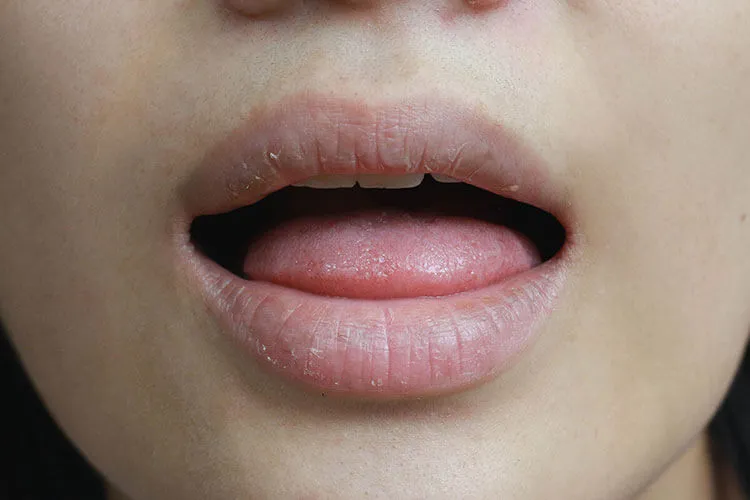
Dry mouth, also known as xerostomia, is a common condition that affects many people, often without them realizing it. This condition occurs when your salivary glands don’t produce enough saliva to keep your mouth moist, leading to a host of potential dental and overall health issues.
In this article, we’ll explore how to recognize the first early signs of dry mouth and discuss effective strategies for early treatment to prevent it from worsening.
What is Dry Mouth?
Dry mouth isn’t just an uncomfortable sensation it can significantly impact your oral health. Saliva plays a crucial role in your mouth by helping to wash away food particles, neutralize acids produced by bacteria, and prevent tooth decay.
When saliva production decreases, it can lead to various problems, including an increased risk of cavities, gum disease, and bad breath.
Recognizing the First Signs of Dry Mouth
Identifying dry mouth early is key to managing the condition before it leads to more serious complications. Here are some early symptoms of dry mouth to be aware of:
1. Persistent Dryness or Stickiness in Your Mouth
One of the most noticeable early symptoms of dry mouth is a persistent feeling of dryness or stickiness in your mouth. You may find it difficult to swallow or speak without taking frequent sips of water.
2. Frequent Thirst
An ongoing need to drink water or other liquids may be a sign that your mouth isn’t producing enough saliva. This is your body’s way of compensating for the lack of moisture.
3. Dry or Sore Throat
A dry or sore throat, especially in the morning, can be an early sign of dry mouth. This symptom is often linked to a decrease in saliva production, which can leave your throat feeling parched and irritated.
4. Dry or Cracked Lips
Lips that frequently feel dry or cracked can also indicate dry mouth. Without adequate saliva, the tissues around your mouth may become dry, leading to discomfort.
5. Thick or Stringy Saliva
If you notice that your saliva has become thicker or stringier than usual, this can be an early sign of dry mouth. Saliva may lose its normal fluidity, making it harder to swallow or speak.
6. Changes in Taste
A diminished sense of taste or a metallic taste in your mouth can be another early indicator of dry mouth. Saliva plays a role in maintaining your taste buds, so a lack of it can affect how you perceive flavors.
7. Symptoms of Dry Mouth While Sleeping
Dry mouth is often more pronounced at night. Symptoms of dry mouth while sleeping include waking up with a dry throat, increased thirst, or bad breath. This can disrupt your sleep and leave you feeling fatigued during the day.

How to Treat Dry Mouth Early
Early treatment for dry mouth symptoms is essential to prevent the condition from worsening. Here are some effective strategies to manage and alleviate the discomfort caused by dry mouth:
1. Stay Hydrated
Drinking plenty of water is one of the simplest and most effective ways to combat dry mouth. Sipping water throughout the day helps keep your mouth moist and reduces the sensation of dryness.
2. Chew Sugar-Free Gum or Suck on Sugar-Free Candy
Chewing gum or sucking on sugar-free candy stimulates saliva production. Look for products that contain xylitol, a natural sweetener that not only boosts saliva flow but also helps protect against cavities.
3. Use a Humidifier
If your dry mouth symptoms are worse at night, using a humidifier in your bedroom can help keep the air moist. This can reduce dryness in your mouth and throat while you sleep.
4. Avoid Dehydrating Foods and Beverages
Certain foods and drinks can exacerbate dry mouth. Avoid caffeinated beverages, alcohol, and salty or spicy foods, as these can further dry out your mouth. Opt for water, herbal teas, and moist foods like fruits and vegetables instead.
5. Practice Good Oral Hygiene
Maintaining good oral hygiene is crucial when dealing with dry mouth. Brush your teeth twice a day with fluoride toothpaste, floss daily, and use an alcohol-free mouthwash. This helps prevent cavities and gum disease, which are more common in people with dry mouth.
6. Use Saliva Substitutes
Saliva substitutes and oral moisturizers are available over the counter and can be helpful in managing dry mouth. These products are designed to mimic the natural lubrication provided by saliva, helping to keep your mouth moist.
7. Consider Medication Adjustments
Some medications can cause dry mouth as a side effect. If you suspect that your medication is contributing to your dry mouth, talk to your doctor. They may be able to adjust your dosage or switch you to a different medication that doesn’t affect saliva production as much.

Preventing Dry Mouth from Worsening
Preventing dry mouth from worsening involves both lifestyle changes and proactive dental care. Here are some additional tips to keep your mouth healthy and hydrated:
1. Regular Dental Checkups
Regular visits to the dentist are essential for managing dry mouth. Your dentist can monitor your oral health, provide treatments to protect your teeth, and recommend products specifically designed for dry mouth.
2. Avoid Tobacco Products
Smoking or using other tobacco products can contribute to dry mouth and worsen the condition. Quitting tobacco can improve your saliva production and overall oral health.
3. Limit Sugar Intake
Sugar is a major contributor to tooth decay, especially in people with dry mouth. Limiting your intake of sugary foods and drinks can help protect your teeth and prevent cavities.
4. Manage Stress
Stress can sometimes lead to dry mouth, either directly or by contributing to habits like teeth grinding. Incorporating stress-relief practices such as yoga, meditation, or regular exercise into your routine can help reduce stress-related dry mouth.
5. Stay Mindful of Your Diet
Incorporating hydrating and saliva-stimulating foods into your diet can help keep your mouth moist. Foods like cucumbers, apples, and celery are high in water content and can stimulate saliva production.
Conclusion
Dry mouth is more than just an inconvenience it can have serious implications for your dental and overall health if left untreated. Recognizing the first signs of dry mouth and taking early action is crucial in preventing the condition from worsening.
By staying hydrated, practicing good oral hygiene, and making smart lifestyle choices, you can effectively manage dry mouth and protect your smile.
If you’re experiencing any symptoms of dry mouth, it’s important to consult with a dental professional.
At Leila Hariri Dental Clinic, our team is here to help you address dry mouth and any other dental concerns you may have. Don’t let dry mouth compromise your oral health take the first step towards relief today!


